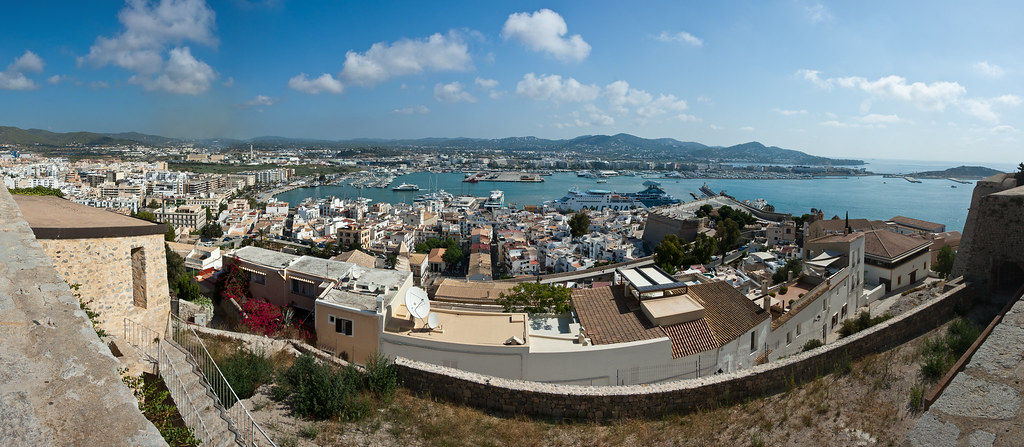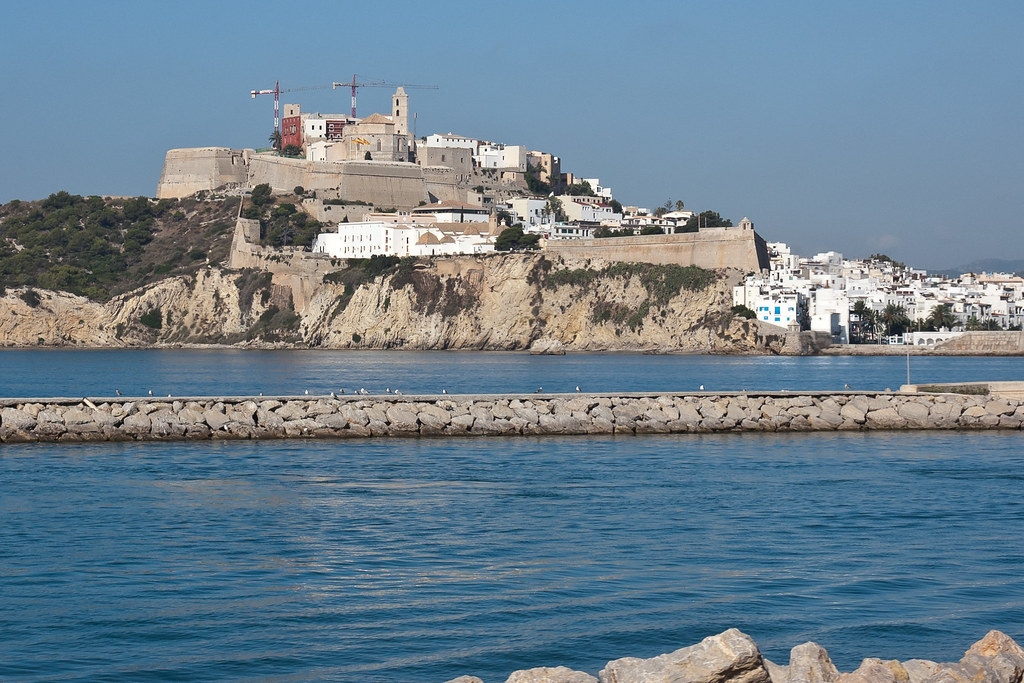ALMERÍA

Above: The view of Almería from the Ryndam.
Almería is a city in Andalusia, Spain, on the Mediterranean Sea. It is the capital of the province of the same name. The name is said to derive from the Arabic term مرأى Al-Mara'ā, which means 'The Watchtower'.

Above: A typical street in one of the poorer neighbourhoods, near the top of the town.
The city was founded by Calipha Abd-ar-Rahman III of Cordova in 955 AD. It was to be a principal harbour in his extensive domain to strengthen his Mediterranean defences.

Above: A panoramic shot from the Moorish castle at the top of the town, with the Ryndam in the distance.
The main attraction of Almería is its Moorish castle, the Alcazaba of Almería, which is the second largest among the Muslim fortresses of Andalusia, after the Alhambra. The medieval fortress was begun in the 13th century but destroyed by an earthquake in 1522. The structure was rebuilt and it includes a triple line of walls, a majestic keep and large gardens.

Above: The Moorish castle, the Alcazaba of Almería.
IBIZA
Ibiza is an island in the Mediterranean Sea, 79 km off the coast of the city of Valencia in Spain. It is the third largest of the Balearic Islands, an autonomous community of Spain. The relatively small island has become world-famous for its association with tourism, nightlife, and the electronic music the island has originated. However, Ibiza is also an island steeped in history with many fascinating cultural landmarks.

Above: A view of the capital, Ibiza Town (the town shares its name with island), taken from The Upper Town (D’alt Vila).
In 654 BC Phoenician settlers founded a port in the Balearic Islands, as Ibossim (from the Phoenician iboshim dedicated to the god of the music and dance, Bes - an interesting fact considering the island is now famous for its music and dance). With the decline of Phoenicia after the Assyrian invasions, Ibiza came under the control of Carthage, also a former Phoenician colony. The island produced dye, salt, fish sauce (garum), and wool.

Above: Upper Town (D’alt Vila), a UNESCO World Heritage Site, taken from the ship pier.
The Upper Town (D’alt Vila) which I visited on a walking tour is located inside citadel walls and exemplifies Renaissance architecture. We visited the cathedral, the Diocesan Museum and the Museum Puget with its large collection of paintings. The latter facility is housed in a noble palace built in the 15th century.

Above: The Cathedral in D’alt Vila.
We also took a drive of the island which visited Ses Salines, a fascinating area marked by 40 salt pits. The salt industry was among the first commercial ventures on the island, and is still in full production today. This region of the island is also a magnificent spot for bird watching due to the high concentration of birds that come here to live and breed, especially flamingos.

Above: The salt pits of Ses Salines.
We made a brief stop in San José, where we visited the 14th-century parish church - a white building that dominates the town.

Above: The organ inside San José's parish church.
Our final stop was the largest town on the island - Sant Antoni de Portmany—famous for the natural beauty of its bay and port area. The town (along with Ibiza Town) is well known for its summer club parties which attract large numbers of tourists. However, the island's government have been working to promote more family-oriented tourism passing rules including the closing of all nightclubs by 6 a.m. (!), and requiring all new hotels to be 5-star.
Thanks for reading. I have some wonderful Norwegian ports coming up for you!

No comments:
Post a Comment